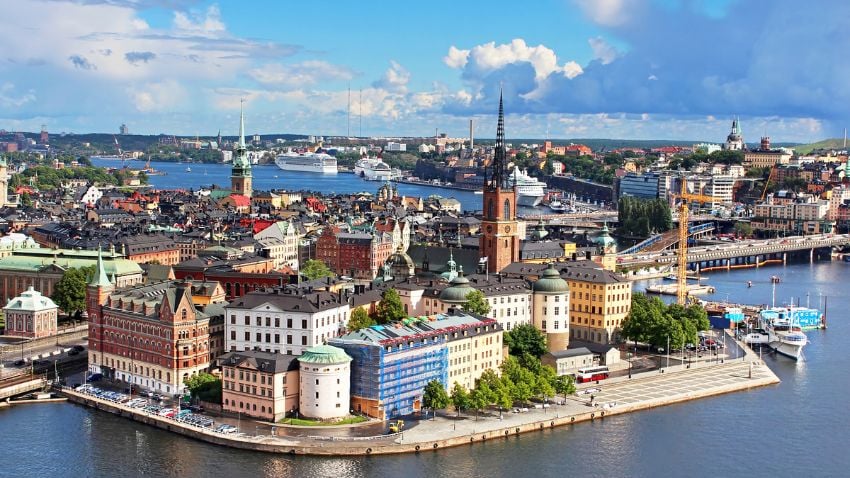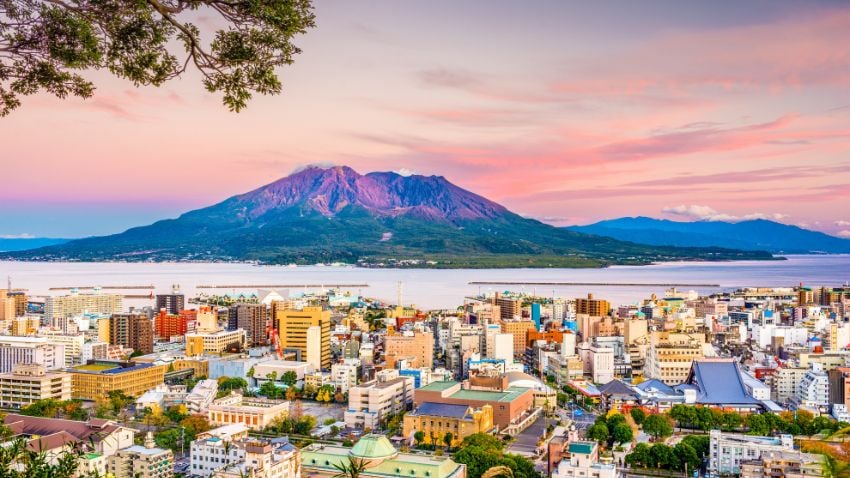Latin America’s Rightward Shift Continues In Honduras
Honduras’ newly elected president, Nasry Asfura of the conservative National Party, was sworn in on January 27, 2026. The election, held on November...

4 min read
The reasons for choosing the expat lifestyle are numerous: more freedom, optimized taxes, a more affordable cost of living, the chance to experience a new culture, a place aligned with your vision and mentality, and so on. No matter your reasons, being an expat entails some complexities, such as getting visas, moving to another country, or even learning a foreign language.
But one of the most important things to understand as an expat is the difference between residency and citizenship. These two legal statuses have different implications for your rights, privileges, and responsibilities in your new country.
To make the most of your expat experience, it's important to understand these implications fully. In this article, we will discuss the main differences between residency and citizenship and how you can benefit from each one. Let's jump right in.

Residency grants individuals the right to work and live without citizenship
Residency refers to the legal status of individuals living in a specific location without the need for citizenship. It grants them the right to reside and work in that country. Residency can provide various benefits, including access to healthcare, employment opportunities, education, property ownership, and investment options.
Residency can be either temporary or permanent, and it is typically obtained through fulfilling specific requirements, which may include documentation, financial criteria, language proficiency, and background checks.
Related content: The Many Residency By Investment Options In The Cayman Islands
In contrast, citizenship is the legal status of being a recognized member of a country, entailing specific rights, privileges, and responsibilities. It can be acquired through birth, ancestry, military service, special programs, investment, marriage or naturalization.
Citizenship offers numerous advantages, including the right to vote, unrestricted international travel with a passport, and increased economic opportunities. The requirements for acquiring citizenship vary, depending on the country, but generally include criteria such as length of residency, language and cultural knowledge, good moral character, citizenship tests, and interviews.
Related content: 10 Citizenship By Investment Programs Available Worldwide

Citizenship goes beyond residency, giving individuals wide-ranging rights, such as voting and holding public office
If you are thinking about moving abroad or embarking on a long-term stay in another country, it is vital to understand the differences between residency and citizenship. These two concepts play a significant role in shaping your rights, privileges, and responsibilities. Let us explore critical points that can help you compare residency and citizenship and make informed decisions for your international journey. Here are some key points of comparison:
Citizenship and residency are distinct legal statuses offering different rights and privileges. Citizenship goes beyond residency by providing individuals with comprehensive legal and political rights, such as voting, actively participating in the political process, and holding public office. On the other hand, while conferring certain rights and protections, residency generally does not encompass these full-fledged political privileges.
Citizenship confers a range of legal and political rights that extend beyond what residents typically enjoy. For example, citizens have the privilege to run for public office and actively participate in government decision-making processes, whereas residents may have just the right to work, live and access certain public services within a country.
Citizenship offers the advantage of unrestricted travel with a passport issued by the country of citizenship, which allows citizens to enjoy visa-free travel to numerous countries and facilitates international mobility. Residency may also offer travel benefits within specific regions or countries, but it often comes with limitations and may require additional visas or permits for international travel.

Some countries allow dual citizenship, allowing individuals to keep their original citizenship while acquiring a new one
Citizenship often entails specific taxation obligations, including worldwide income reporting and potential taxation on global earnings. Residency might offer financial advantages, especially if it involves non-taxation or favourable tax regimes. However, tax implications can vary significantly based on individual circumstances and the countries involved, making professional advice crucial.
Some countries allow dual citizenship, enabling individuals to retain their original citizenship while acquiring a new one. Other countries require individuals to renounce their previous citizenship when acquiring a new one. Understanding the policies and implications regarding renunciation and dual citizenship is vital for individuals considering these options.

By understanding the different residency types and their requirements, you can navigate the application process more efficiently
Understanding residency options is essential. A temporary residency allows you to live in a country for a specific period, often tied to employment or educational purposes. Permanent residency, however, offers stability and allows you to reside indefinitely. Some countries also provide long-term residency options.
Obtaining residency typically involves meeting specific requirements. These commonly include providing the necessary documentation and paperwork, such as passports, visas, and application forms. Financial and income criteria may also be evaluated to ensure you can support yourself during your stay. Additionally, some countries may require you to demonstrate language proficiency, especially if needed for daily life and integration. Background checks are often conducted to assess your criminal record and ensure compliance with the country's security measures.
By understanding the different types of residency and the requirements, you can make an informed decision and navigate the application process more effectively.

It is very important to familiarize yourself with the processes involved in order to facilitate obtaining your new citizenship
When it comes to acquiring citizenship, there are several paths you can explore. Birthright citizenship is granted to individuals born within a particular country's territory, automatically conferring citizenship upon them. Citizenship through descent or ancestry allows individuals with parents or grandparents who are citizens of a specific country to claim citizenship based on their familial ties. Naturalization is another common route, where individuals can apply for citizenship after meeting certain eligibility criteria and going through a legal process.
Acquiring citizenship often involves fulfilling specific criteria. The length of residency is a key factor, as some countries require a certain number of years of continuous residency before being eligible to apply for citizenship. Language and cultural knowledge may be assessed through language proficiency tests or integration programs to ensure applicants can effectively communicate and integrate into society. Good moral character is often evaluated to ensure individuals seeking citizenship have demonstrated law-abiding behaviour and adherence to ethical standards. In addition, citizenship tests and interviews may be conducted to assess an applicant's knowledge of the country's history, government, and values.
Understanding the different avenues available to acquire citizenship and the associated requirements allows you to chart a suitable path toward obtaining citizenship in your chosen country. It's essential to familiarize yourself with the specific criteria and processes involved to increase your chances of a successful citizenship application.
Related content: The Basics Of How To Get A Second Passport Or A Second Residency

Residence offers the right to live and work in a country, while citizenship offers broader rights, such as political right
Residency and citizenship are distinct legal statuses that offer different benefits and implications. Residency provides the right to live and work in a country, while citizenship offers comprehensive rights, including political participation and global mobility.
When deciding between residency and citizenship, individuals should consider factors such as legal and political rights, travel and mobility, taxation, social integration, and renunciation and dual citizenship policies. Seeking professional advice and thoroughly researching each option's specific requirements and implications can help you choose the best option according to what you want and the requirements you fit.
If you want the best intel from the expat world, including profitable offshore opportunities, little-known tax-saving strategies, and hard-won insights on immigration, passports, and Plan-B residencies, all delivered to your inbox every single week, then join our daily correspondence, EMS Pulse®. Currently enjoyed by over 84,000 expats and expat-hopefuls worldwide. Fill in the form below to join our newsletter free:

Written by Mikkel Thorup
Mikkel Thorup is the world’s most sought-after expat consultant. He focuses on helping high-net-worth private clients to legally mitigate tax liabilities, obtain a second residency and citizenship, and assemble a portfolio of foreign investments including international real estate, timber plantations, agricultural land and other hard-money tangible assets. Mikkel is the Founder and CEO at Expat Money®, a private consulting firm started in 2017. He hosts the popular weekly podcast, the Expat Money Show, and wrote the definitive #1-Best Selling book Expat Secrets - How To Pay Zero Taxes, Live Overseas And Make Giant Piles Of Money, and his second book: Expats Guide On Moving To Mexico.

Honduras’ newly elected president, Nasry Asfura of the conservative National Party, was sworn in on January 27, 2026. The election, held on November...

For a growing number of Americans, cost-of-living math no longer works. Housing feels harder to reach, everyday costs keep climbing, and long-term...

Costa Rica has become one of the most popular expat and digital nomad destinations in Latin America, known for its natural beauty, relaxed lifestyle,...